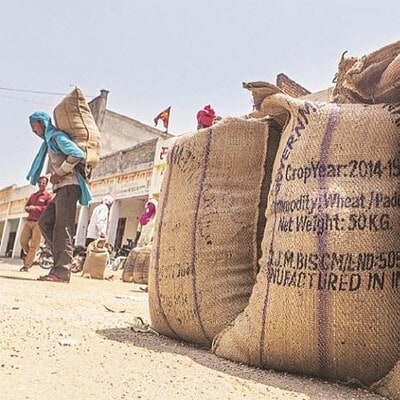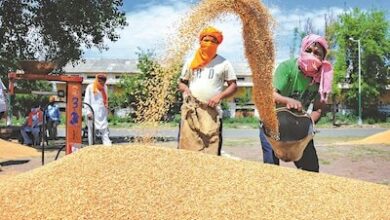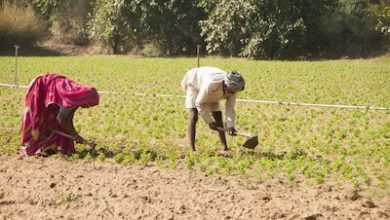Cabinet approves PM-AASHA scheme extension with Rs 35,000 cr outlay | Agriculture

Key changes in PM-AASHA
The government has converged the Price Support Scheme (PSS) and Price Stabilisation Fund (PSF) schemes under PM-AASHA to serve farmers and consumers more effectively. This integration aims to provide farmers with remunerative prices for their crops, while stabilising the market prices of essential commodities, thus making them affordable for consumers.
The revamped PM-AASHA now includes components like:
-
Price Support Scheme (PSS) -
Price Stabilisation Fund (PSF) -
Price Deficit Payment Scheme (PDPS) -
Market Intervention Scheme (MIS)
Reforms in procurement policies
Starting from the 2024-25 season, the government will procure pulses, oilseeds, and copra at Minimum Support Price (MSP) under the Price Support Scheme. The procurement will cover 25 per cent of national production, enabling states to buy more of these crops to ensure farmers receive fair prices and to prevent distress sales. However, a 100 per cent procurement policy will apply to Tur, Urad, and Masur for the 2024-25 season.
To further strengthen procurement, the government has increased its financial guarantee to Rs 45,000 crore. This will enable the Department of Agriculture and Farmers Welfare (DA&FW) to buy more pulses, oilseeds, and copra from registered farmers on platforms like the eSamridhi portal (NAFED) and eSamyukti portal (NCCF) when market prices fall below MSP. This move is also expected to boost domestic production, reducing reliance on imports.
Price Stabilisation Fund (PSF)
The PSF will continue to protect consumers from sharp price spikes in agricultural and horticultural commodities by maintaining a strategic buffer stock of pulses and onions. The Department of Consumer Affairs (DoCA) will procure these items when market prices exceed the MSP, including from pre-registered farmers.
This measure aims to discourage hoarding, reduce speculative trading, and ensure that essential commodities are available at affordable prices.
Interventions under PSF have also extended to crops like tomatoes, and the scheme supports the subsidised retail sale of products like Bharat Dal, Bharat Atta, and Bharat Rice.
Price Deficit Payment Scheme (PDPS)
To encourage states to adopt the Price Deficit Payment Scheme for oilseeds, the government has increased the coverage from 25 per cent to 40 per cent of state production. Additionally, the implementation period has been extended from three to four months. Under this scheme, the Central Government will cover up to 15 per cent of the difference between the MSP and the sale or modal price, providing crucial support to farmers.
Market Intervention Scheme (MIS)
The Market Intervention Scheme has also undergone changes to support farmers growing perishable horticultural crops. The government has raised the coverage from 20 per cent to 25 per cent of production and introduced an option for direct differential payments to farmers, replacing the physical procurement process.
In the case of tomato, onion, and potato (TOP) crops, the government will bear the costs of transportation and storage, helping to bridge the price gap between producing and consuming states during peak harvesting times. This initiative will ensure farmers receive fair prices for their produce while stabilising prices for consumers.
First Published: Sep 18 2024 | 5:24 PM IST




